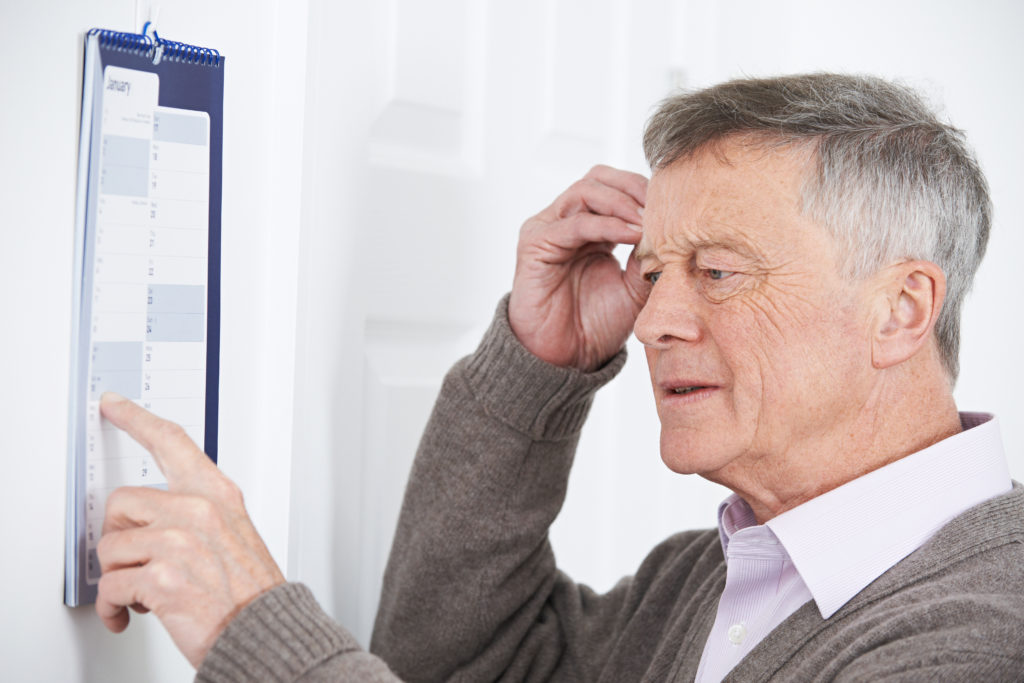Electrical Stimulation of the brain can make memory loss undo
Improved memory performance by electrical Stimulation?
Especially in old age, our memory is getting worse and worse. Researchers found that electrical Stimulation can improve older people’s memory. After such treatment, the memory is supposedly as good as people decades younger.
In a recent study by the Northwestern University in Illinois, it was found that the electrical Stimulation of a certain part of the brain causes in the elderly for improvement of memory. The results of the study were published in the English journal “Neurology”.

Electrical Stimulation of the brain improves memory
The stimulation of a certain part of the brain of people aged over 64 years of age with normal age-related memory loss has led to the Affected the performance of the memory is again increased. The treatment worked so well that at the end of the study there was no difference in the test results of healthy younger adults and older Participants was evident, report the researchers. The results are the latest in a long line of medical studies which explore the benefits of electrical Stimulation in the brain. In the current study, the effects of the use of electricity on the Hippocampus of the brain were studied.
There was a significant improvement in memory performance
It was a relatively small study with only 16 participants took part, which were aged between 64 and 80 years old. The Participants reported on typical memory problems for her age. After a treatment over a period of five days, in which your brain 20 minutes per day, with a weak electric current was stimulated, their memory performance comparable to that of younger people. The memory of the older people improved up to the level that it was no longer to be distinguished from the memory of younger healthy people, write the authors of the study in a press release. It is a major improvement was so.
Results of young and older people were equally good
Before used electric therapy, which is also referred to as transcranial magnetic stimulation (TMS), cut off the Participating in memory tests to 15 percent worse than the 18 – to 34-Year-old. The Participants achieved in the case of computer-based tasks to set relations between objects, a result of 40 per cent. Younger people obtained in a previous study, a result of 55 percent. After the electrical Stimulation, both results were, however, equally well.
Activities in the brain are controlled by electrical impulses
Transcranial magnetic stimulation increased the activity in the so-called parietal lobe, which controls the Hippocampus. The Hippocampus influences functions, such as, for example, the formation of new memories, Learning and emotional control. All of the activities in the brain, including the formation of and the Retrieving of memories, are controlled by electrical impulses. If these electrical signals are interrupted or reduced, this can affect a Person’s ability to create new memories or to remember old.
Electric current can synchronize brain waves
A Boston University study, which was published this month in the journal “Nature Neuroscience”, showed that the brain waves of elderly people between two Parts of the brain that control short-term memory, are in rhythm. If certain areas of the brain, the lobes, the temporal and the prefrontal cortex, with electrical current stimulates be, could be synchronized to the brain waves, what are the memory formation and may improve, speculate the researchers. Alzheimer’s disease occurs when proteins accumulate in the brain and nerve damage cause. As a result, the blood flow is reduced to vital electrical signals in the brain. Therefore, the search for new Ways to promote activity in the brain, which decreases in the case of dementia patients could contribute to the function of to restore or slow the decline.
Treatment also improved short term memory by younger people
In the last year of the study published, the researchers have the same therapy, which was carried out with a against the skin of the head-mounted metal spiral, in 16 patients without memory problems at the age of 34 years were tested. The data from the study were used in the current study for comparison. The ability of Participants to remember Details to photos, improved by the treatment after the procedure for at least 24 hours. The authors of the study are not sure how long the effects could last. They hope, however, that this new type of treatment in humans can be tested with mild cognitive impairment, a precursor to Alzheimer’s disease. (as)



